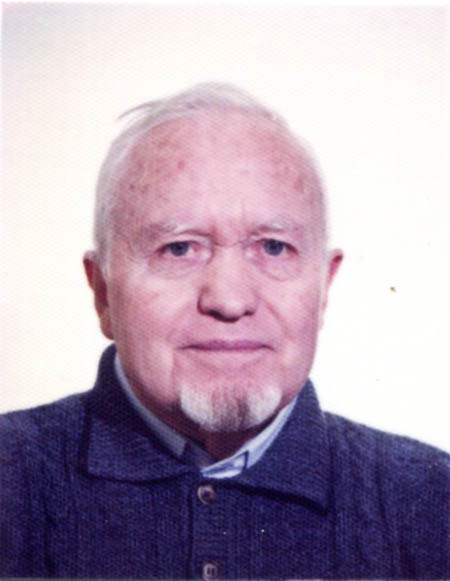Daniel Comboni
Comboni Missionaries
Institutional area
Other links
Newsletter
In Pace Christi
Martini Mario
The life of Fr. Mario Martini was that of a missionary dedicated to work and sacrifice, despite the problems and difficulties encountered on his journey.
Born at Brentonico (Trent) on 10 May, 1920, he joined the junior seminary of the Comboni Missionaries at Trent. He did his novitiate at Venegono where he took temporary vows on 7 October, 1940. He studied theology at Verona and at Rebbio. He was ordained priest at Verona on 7 July, 1946 and spent his first four years as a missionary at Trent and Pesaro.
In 1949 he was assigned to Mozambique. After studying Portuguese at Viseu for a year, in 1950 he left for the missions of Mozambique where the Comboni Missionaries had been present since 1946, led by Fr. Giuseppe Zambonardi who was joined the following year by another five colleagues. We find Fr. Mario in the second group of Comboni missionaries in Mozambique where he stayed for almost 28 years (1950-1978). He worked at Mossuril, at Memba (eleven years), at Namahaka, at Mueria (three years), at Carapira, at Lunga, at Mossuril (five years) and at Matibane (four years). Some of these missions on the coast had a Moslem majority.
Regarding this time in Mozambique we take a leaf from the book of Giuseppe Franzelli’s Mondo Comboniano: “The founding or acceptance of a growing number of missions was followed by intense work of first evangelisation characterised by catechumenate, the construction of houses, schools, chapels and churches and by a notable involvement in agricultural production to support the works.
The period from 1964 to 1974 experienced great political, ecclesial and pastoral changes. Vatican II brought a wind of renewal in the church and finds in the new bishop of Nampula, Mgr. Manuel Vieira Pinto, a courageous exponent of this renewal, supported by the Comboni Missionaries. Evangelisation now includes the rights and dignity of the human person. After the publication of the document The duty of conscience, Bishop Vieira and 13 Comboni Missionaries are expelled from Mozambique. In 1974, Mozambique becomes independent and establishes a Marxist government which forbids worship in church. The Church as an institution and the leaders of the Christian communities are persecuted and denigrated. In 1976 civil war breaks out between Renamo and Frelimo claiming many victims”.
Fr. Mario experienced but the beginning of this cruel civil war. Two years later, in 1978, he was assigned to Italy. Here he shared his time between the communities of Trent (19 years altogether) and Arco (four years), up to 2002 when he was sent for medical treatment to Verona. There Fr. Mario often repeated “I have a lot to do”. He meant this in a spiritual sense. Fr. Mario returned to the home of the Father on 20 November, 2009.
Fr. Graziano Castellari remembers him as a person with “an extrovert character, inclined to optimism, perhaps a bit of a grumbler”. Fr. Tarcisio Agostoni writes: “I knew Fr. Mario since 1935, especially in the novitiate at Venegono. I had the impression he was a bit shy with his superiors, or even fearful. In community he distinguished himself for his ability to help especially with material work. He was a bit gruff but very much like a rough diamond”.
Here are the words of his grandnephew, Mario, spoken at his funeral: “You were for us a very important person and presence. At important moments, whether sad or joyful, you were there with us to share them with us and to guide us. I shall never forget how your sister, my grandmother, spoke of you and your heroic and moving humanitarian missions of faith in your beloved Africa, or how I was enchanted by your homilies at the church of the Most Holy Trinity. We shall forever bear you in our hearts”.
Da Mccj Bulletin n. 244 suppl. In Memoriam, aprile 2010, pp. 7-10.

